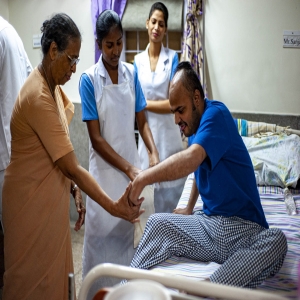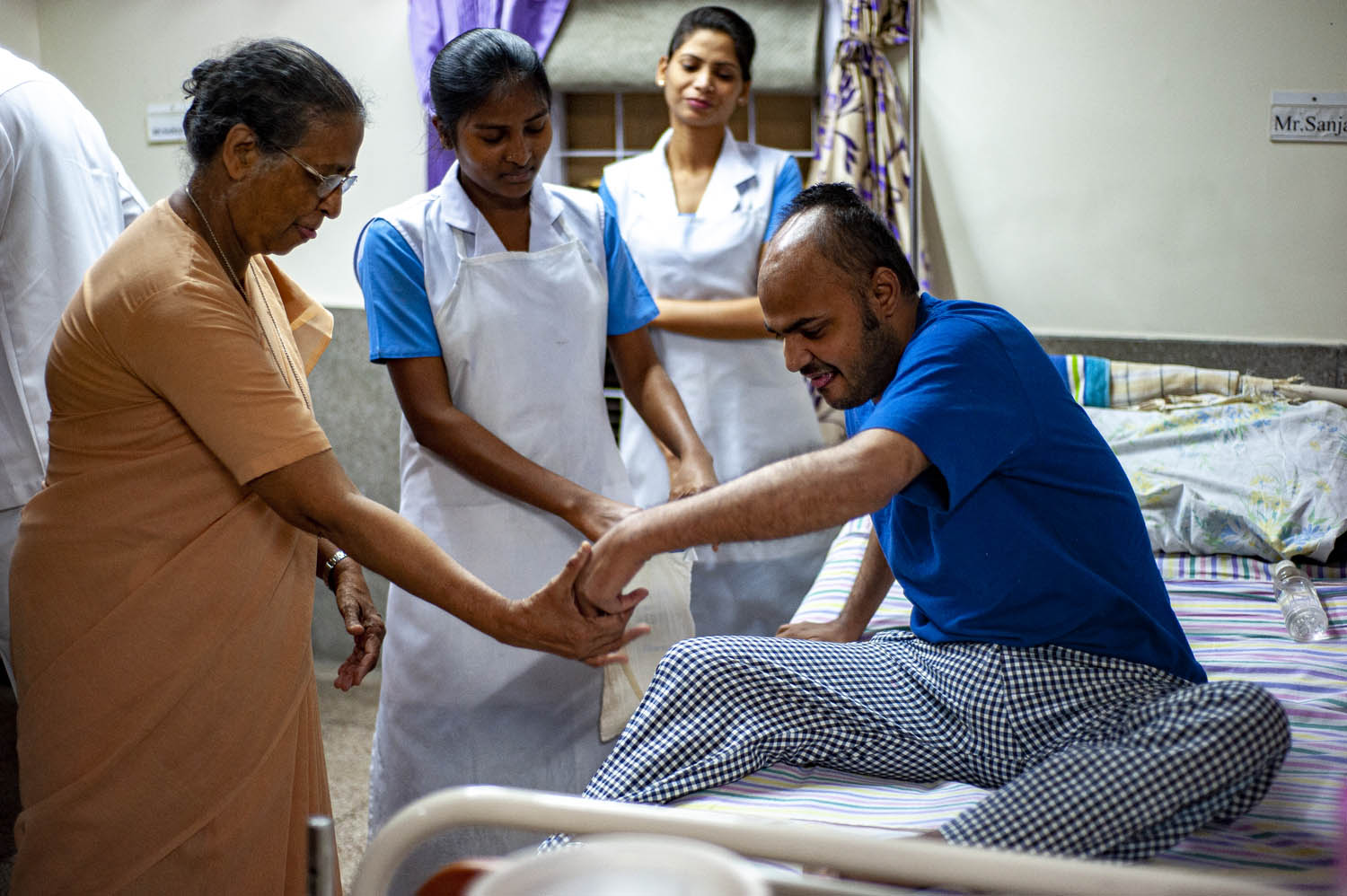
 A. J. Philip
A. J. Philip

A friend of mine had a persistent health problem. He approached a physician who suspected the nature of the issue upon hearing his complaint. The doctor prescribed some tests and asked him to return with the reports. When he reviewed the reports, he became convinced that the patient was suffering from cancer, which had reached an advanced stage. A doctor known for his bluntness, he told my friend:
"There are two options for you. One, you can go to a major cancer hospital for treatment. You may be prescribed chemotherapy and other costly procedures. You will be able to live for about six months. By then, you would have spent all your resources. You might have even sold your property, including your house. Whatever the doctors may claim, they won't be able to extend your life significantly.
"The second option is that I will treat you with medicines that will mitigate your hardship and pain. You don't have to go anywhere. You can stay with your wife and children. You will have quality of life and comfort in knowing that your wife and children will keep their house and won't be indebted because of you. As for me, you don't have to pay any fees."
My friend, who worked for an NGO, was stunned to hear this. He said he would consult his family and friends before giving a reply. A couple of days later, he met the doctor, told him his decision, and they prayed together.
He lived for about one year after being diagnosed with advanced cancer. When his daughter got married many years later, I made it a point to attend the wedding. I praised the doctor for his wise and compassionate advice.
Around that time, I had a colleague who was diagnosed with cancer. His condition was terrible—both his eyes had sunk to the level of his nostrils. I asked him to work from home, a euphemism for paid leave. One didn't need to be an oncologist to know that his days were numbered. One day, I heard he underwent an operation because the lower portion of his body had become paralysed.
I met him again after the operation, which had made little difference to his condition. His wife was planning to shift him to Kerala. However, when he was taken to the airport, the airline authorities refused to fly him due to his condition. He was brought back to his home, where he died a few days later.
He left behind three daughters, including an infant. He was happy when I promised him that I would support their education. Today, two of my friends and a relative are supporting the education of the three children. To this day, I do not know what prompted the doctor to conduct the costly operation when it was clear that his days were numbered.
These are just two examples of the medical care available in India, and they show contrasting perspectives. All I can do about it is write an article or two. But this was not the case when a young oncologist in Mumbai encountered an incident that haunted him.
I am not sure whether Dr LJ de Souza held the degrees MS, FRCS, FRCSE, FACS, and FCPS when the incident occurred about 40 years ago. At the time, he was working in a hospital in Mumbai, known as Bombay in those days. While making his hospital rounds, the head of the hospital asked him to have a patient discharged and removed from the premises.
Dr de Souza looked at the patient, a terminally ill cancer patient with abscesses all over his body. There was no way he could be treated back to health. The director could not be blamed because the bed he was occupying could be allotted to a patient who still had hope of recovery. With great anguish, Dr de Souza complied and had the patient discharged and removed.
The next day, while leaving the hospital, the young oncologist and surgeon saw the patient lying near the hospital gate, surrounded by stray dogs. He felt guilty for not ensuring the dignity of death for the patient, who had no one to rely on in the world. That day, Dr de Souza vowed to ensure that no patient would ever suffer such a fate again.
Thus, the idea of Shanti Avedna Sadan was born. "Shanti" means peace, something everyone aspires to in life. Who has not heard of the prayer "Om Shanti"? It is an ancient Vedic mantra used in meditation and yoga to promote peace and represents the interconnectedness of the mind, body, and spirit.
"Shanti" is often repeated three times during chanting to symbolise the states of sleeping, dreaming, and waking. "Vedna" means pain, and "Avedna" means painlessness. Anyone who knows even a little about cancer understands that what makes the disease dreadful is the pain it causes. "Sadan" means house.
In 1986, the first Shanti Avedna Sadan was established in Mumbai by Dr de Souza. Few could have imagined at the time that he was not just launching a residential care program for a handful of patients but laying the foundation for a significant all-India movement. His vision was clear.
Dr de Souza was not creating an alternative hospital for cancer treatment. Shanti Avedna Sadan, hereafter called SAS, is for those who have already undergone treatment for cancer but know that the disease has progressed to a stage where cancer cells will multiply uncontrollably, regardless of the medicines used against them.
SAS admits only those who are not looking to add days to their lives but life to their days. In other words, it is a hospice where palliative care is provided because curative treatment is no longer possible.
In India, we frequently hear about the "quality of life." Every new housing complex in cities like Mumbai and Kolkata promises a high quality of life for its residents. However, no one talks about the "quality of death." In a global survey of 80 countries, India ranked 67th in terms of the quality of death. Poor quality of death results in immense suffering for the dying person and their family. This can only be improved by increasing access to palliative care services.
Hospice laws define such facilities as being for patients expected to live no longer than six months. They do not need costly chemotherapy or expensive MRI scans. What they need is pain relief, good nursing care, and the affection of loved ones. If they can also watch birds, listen to inspiring music, and find peace with their Lord, they need nothing more.
That is what SAS provides. No, it does not charge patients any fees. Everyone is cared for in the same manner, and private rooms are not provided except in the rarest cases where privacy becomes essential.
Patients are given good food, both vegetarian and non-vegetarian, and one family member is usually allowed to stay with them. Admission is prioritised for patients experiencing severe distress and for the poor and destitute. It is not necessary for all patients to die at SAS. As a friend and synonym for palliative care, KV Hamza, said, two patients he referred to SAS lived for years—one for three and a half years.
Patients are encouraged to return home, but if they have no place to go, they are allowed to stay and help with the hospice's operations.
I learned all this about SAS when, early last week, I was invited to the Delhi branch of SAS near Safdarjung Hospital. The occasion was the 30th annual day celebration of SAS, attended by Dr de Souza, his wife Carmen de Souza, and their son, oncologist Dr Ashwin de Souza.
SAS has three establishments: one in Mumbai and the others in Delhi and Goa. It is run by a Trust whose patron is Cardinal Oswald Gracias. Dr de Souza serves as the Managing Trustee, while his son, an oncologist at Tata Hospital, is the Joint Managing Trustee. The Delhi branch is managed by Sister Tabitha Vazhuthalakattu and Sister Felcy Mullor.
The celebrations were attended by the principals of many nursing colleges, including some of the most prestigious institutions in Delhi and beyond. A rich cultural program followed, in which one of my friends played a leading role in a skit presented on the occasion.
The skit depicted a daughter who struggled to care for her father, played by Nanda Kumaran, who was suffering from terminal cancer. A local NGO came to her rescue, suggesting that she take him to SAS. She had many apprehensions, such as the expenses involved. Eventually, she decided to take him to SAS, where the care he received strengthened him so much that he was able to play carrom with fellow patients and even defeat them. After a few months of relief, however, the disease tightened its grip, and the father passed away. It was a peaceful death.